So, here’s the million-dollar question: when do puppies stop biting? Well, it varies from pup to pup, but on average, most puppies start to outgrow their biting phase between 8 and 12 months of age.
Daily Dog Training
Hey there, puppy pals! 🐾 We’ve all been there – those adorable little furballs with razor-sharp teeth that seem to think our hands and feet are chew toys. Today we’re diving into the wiggly world of puppy biting and answering the burning question: “When do puppies stop biting?” Get ready for some tail-wagging insights, and let’s put those puppy teeth under the microscope!
Biting-Teething Timeline
Puppies are like tiny teething tornadoes, and their chomping tendencies usually kick in when they’re around 3 to 4 weeks old. Yup, you read that right – it’s pretty much a puppy rite of passage! These little chompers are on a mission to explore the world around them, and that means biting whatever they can sink their teeth into. So, don’t be surprised if your fingers, toes, and even your favorite shoes become the latest targets in their grand teething adventure.
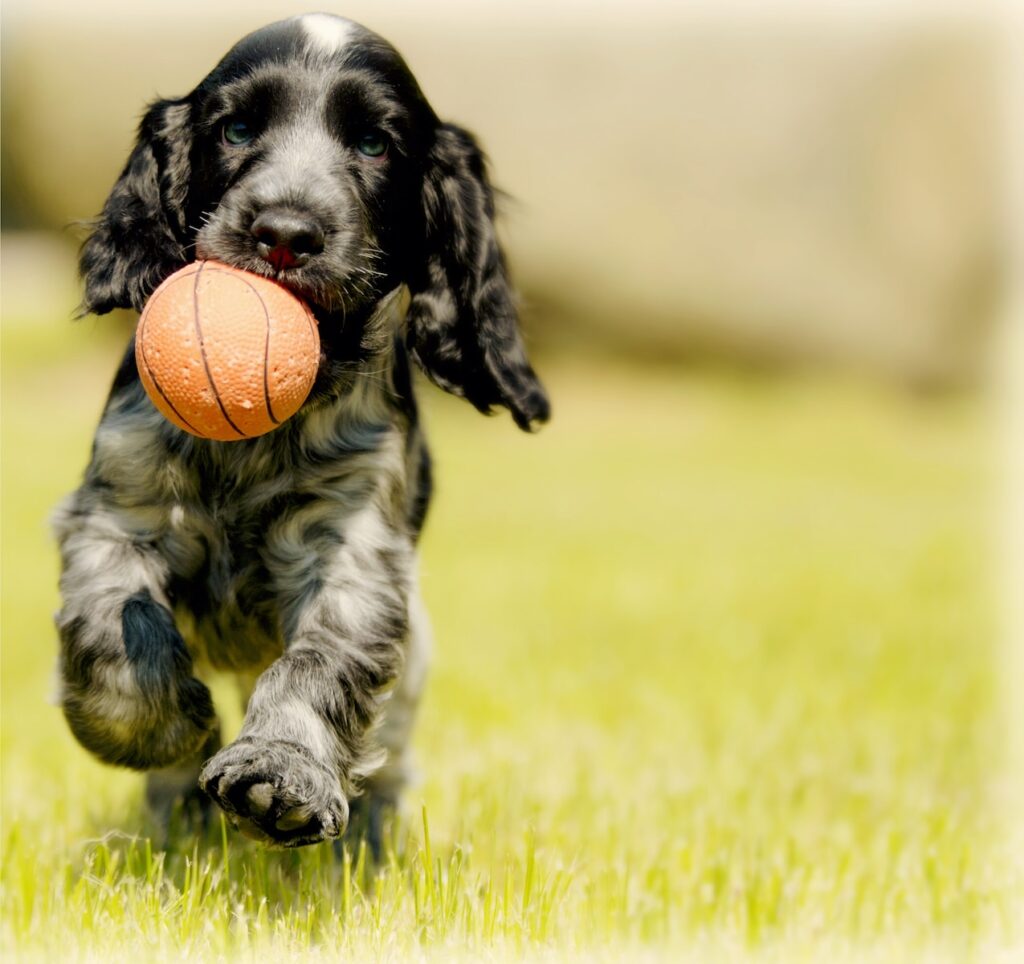
The Teething Phases of Puppy Biting:
Now, let’s break down those teething phases because knowing what your furry friend is going through can make a world of difference:
1. Early Teething (3-4 Weeks): This is the “gumming” stage, where puppies start exploring the sensation of chewing. It’s more about testing the waters than causing pain.
2. Primary Teeth (3-6 Months): Ah, the phase when those puppy teeth start making their grand entrance! During this time, your pup’s baby teeth will fall out to make way for their adult teeth. It’s like a canine version of losing baby teeth, and it can be a bit uncomfortable.
3. Adult Teeth (5-8 Months): This is when the big league chompers arrive! The adult teeth are larger and sharper, and your pup may chew more as they try to soothe their sore gums.
4. The Post-Teething Calm (8-12 Months): Good news, folks! By the time your pup reaches 8-12 months, most of their teething woes should be behind them. You’ll notice a decrease in their chewing antics as they settle into adulthood.
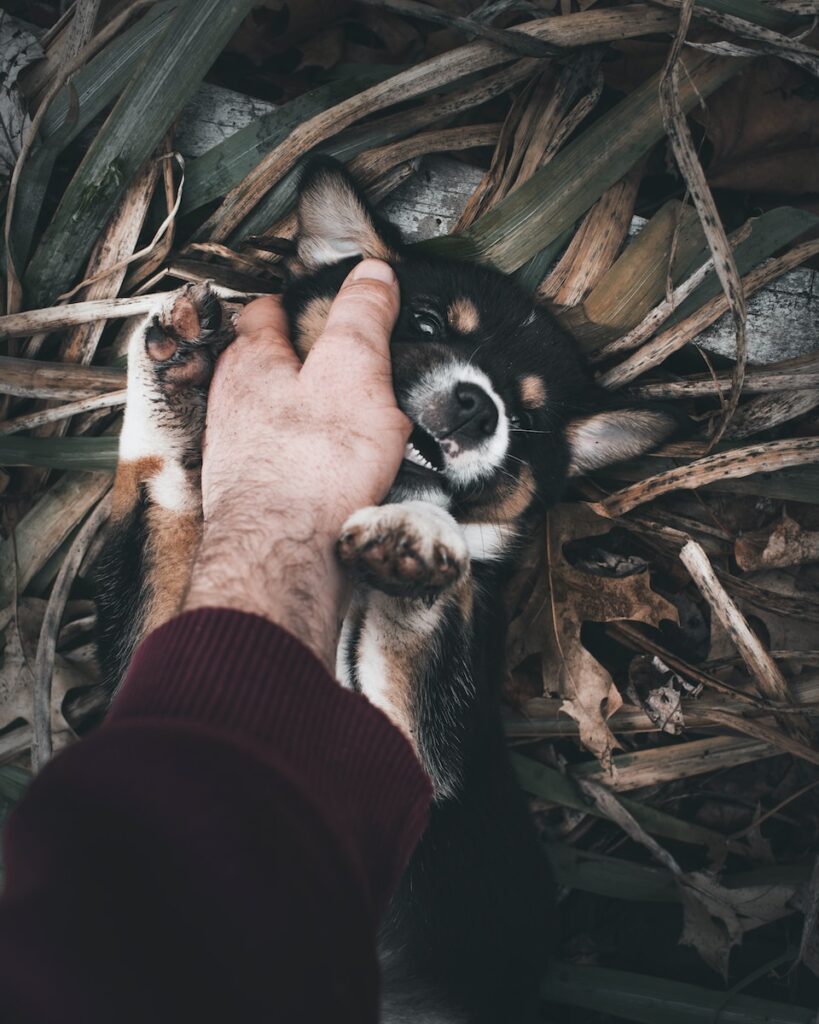
The Big Reveal: When Do Puppies Stop Biting?
So, here’s the million-dollar question: when do puppies stop biting? Well, it varies from pup to pup, but on average, most puppies start to outgrow their biting phase between 8 and 12 months of age. This magical transformation happens as their adult teeth fully emerge, and their gums stop feeling sore and itchy.
However, keep in mind that some pups may mature a bit faster or slower than others. And remember, training and patience play a huge role in curbing those biting tendencies. So, the sooner you start teaching your pup bite inhibition and redirecting their chomping energy towards appropriate toys, the quicker they’ll become a well-behaved canine citizen.
Breeds and Bitey Habits
Here’s a fun twist: different dog breeds may have their unique take on play biting. While all dogs can get in on the nibbling action, some breeds are known for their enthusiastic chomping. Take working dogs like German Shepherds or Rottweilers—they tend to be more inclined to explore with their mouths. Terrier breeds, such as the lively Jack Russell, also have a playful penchant for nibbling.
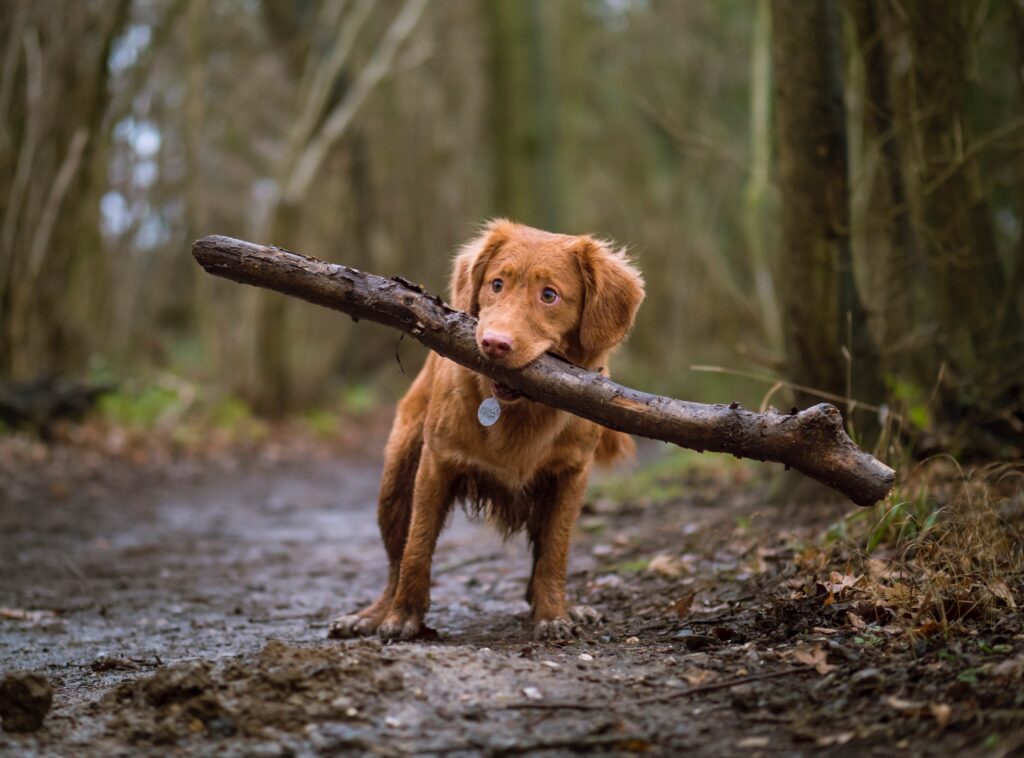
Tips for Taming Those Tiny Teeth
While you’re waiting for your pup to outgrow their biting phase, here are some pawsome tips to help you survive:
1. Provide Chew Toys:
Keep a variety of puppy-safe chew toys on hand. When your pup starts nibbling on your hand, offer them a toy as a tasty distraction.
Top-Notch Toys for Biting Pups
Now, here’s a hot topic: the best toys to help with biting. As a rule of thumb, go for sturdy and durable options:
1. Tug-of-War Rope: It’s a pulling game favorite, but watch out for overexcitement—it can lead to more biting than you bargained for!
2. Rubber Treat Dispenser: Fill it with soft dog food for longer-lasting entertainment.
3. Rag Toy: Comes in various sizes and is perfect for all breeds. Those tassels are a hit with playful pups.
2. Teach Bite Inhibition:
Gently yelp or say “ouch” when your pup bites too hard. This mimics how their littermates would react during playtime. It helps them understand that biting hurts and should be avoided.
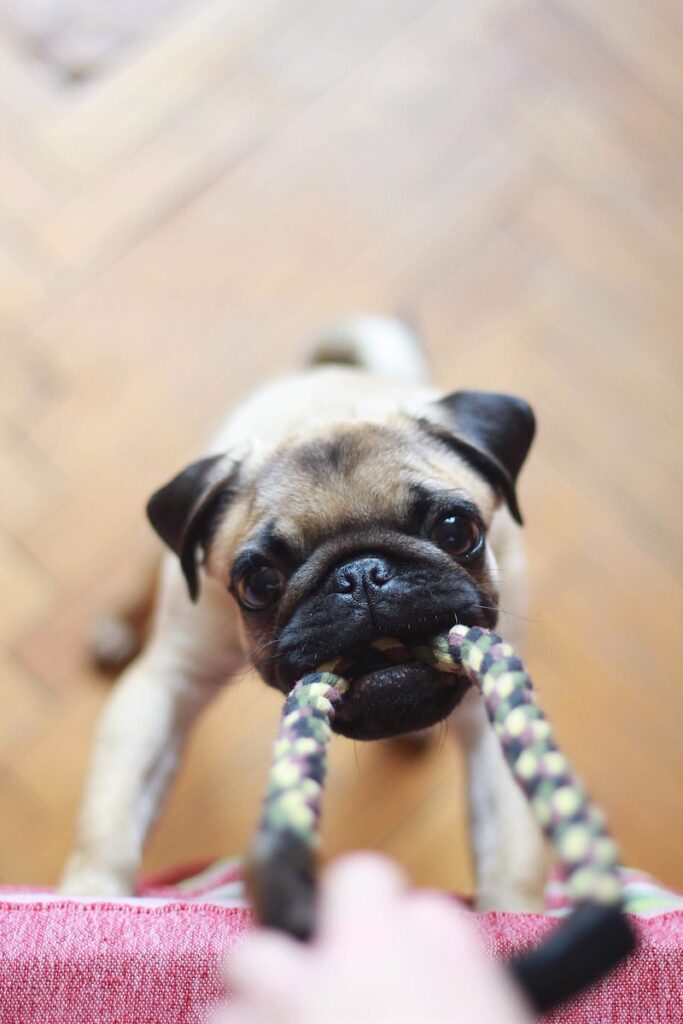
3. Be Consistent:
Everyone in your household should use the same training techniques. Consistency is key to helping your pup understand what’s expected.
4. Puppy Socialization:
Let your pup interact with other dogs. They’ll learn valuable bite inhibition skills from their furry friends.
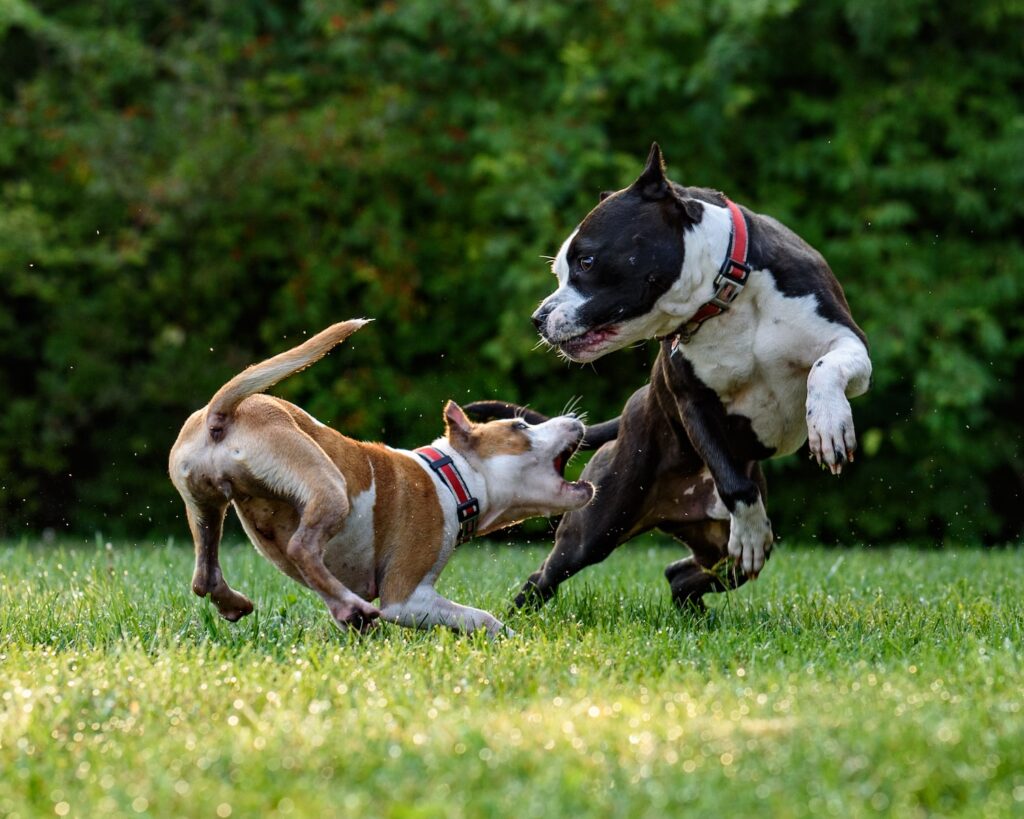
Play Biting Around Kids
Kids and puppies—they’re a match made in energy heaven! But sometimes, all that enthusiasm can lead to play biting. It’s a good idea for an adult to supervise interactions between young children and pups. Teach the kiddos how to play gently and calmly, and everyone will have a blast!
5. Redirect, Don’t Punish:
Instead of scolding your pup for biting, redirect their attention to a toy or treat. Positive reinforcement works wonders!
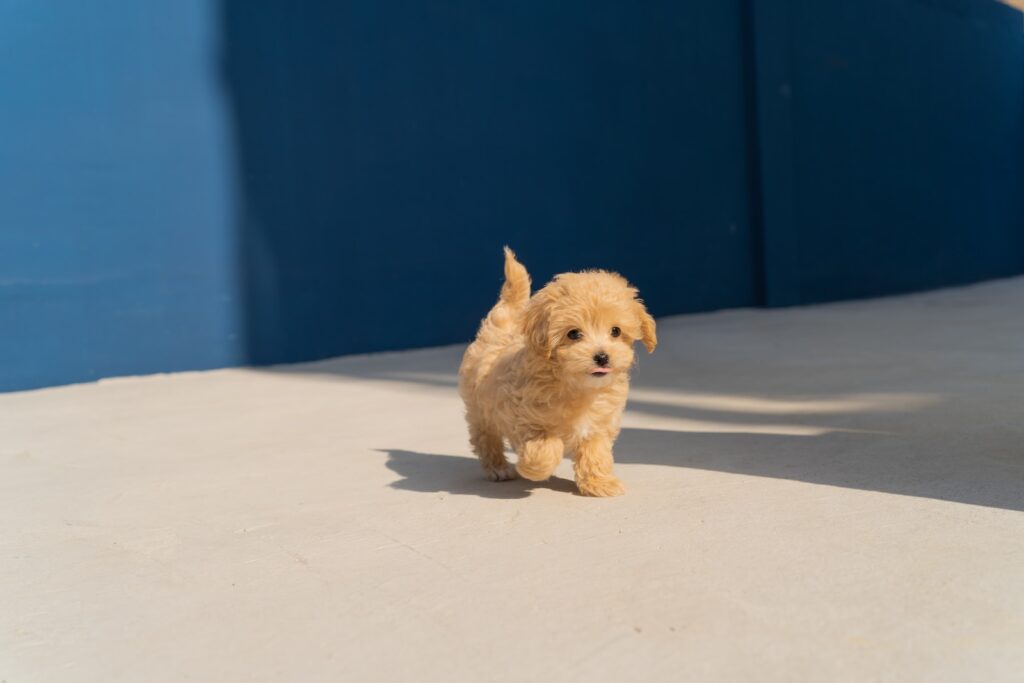
6. Consult a Professional:
If your pup’s biting behavior becomes overly aggressive or doesn’t improve with training, it’s wise to seek guidance from a professional dog trainer or behaviorist.
If you’re embarking on a journey to make your pup the ultimate doggo sensation, you simply must explore Adrienne Farricelli’s dog training program. Trust me, she’s one of the kindest souls in the world of dog training. And her classes? Well, they’re like having your very own personal dog whisperer right at your disposal. Adrienne’s approach is incredibly approachable (no pun intended), and she’ll guide you step by step to have your furry friend trained like a pro. So, if you’re seeking the ultimate, in-depth guide to canine training success, don’t miss what Adrienne’s offering. Your pup will shower you with a million tail wags! 🐶❤️
Final Thoughts: Embrace the Chomping Charm
So, when do puppies stop biting? The journey from nibbling nippers to well-mannered dogs takes time and patience. Embrace the chomping charm of puppyhood, and remember that with proper training, those tiny teeth will eventually give way to a big, beautiful, bite-free smile! 🦴🐶❤️
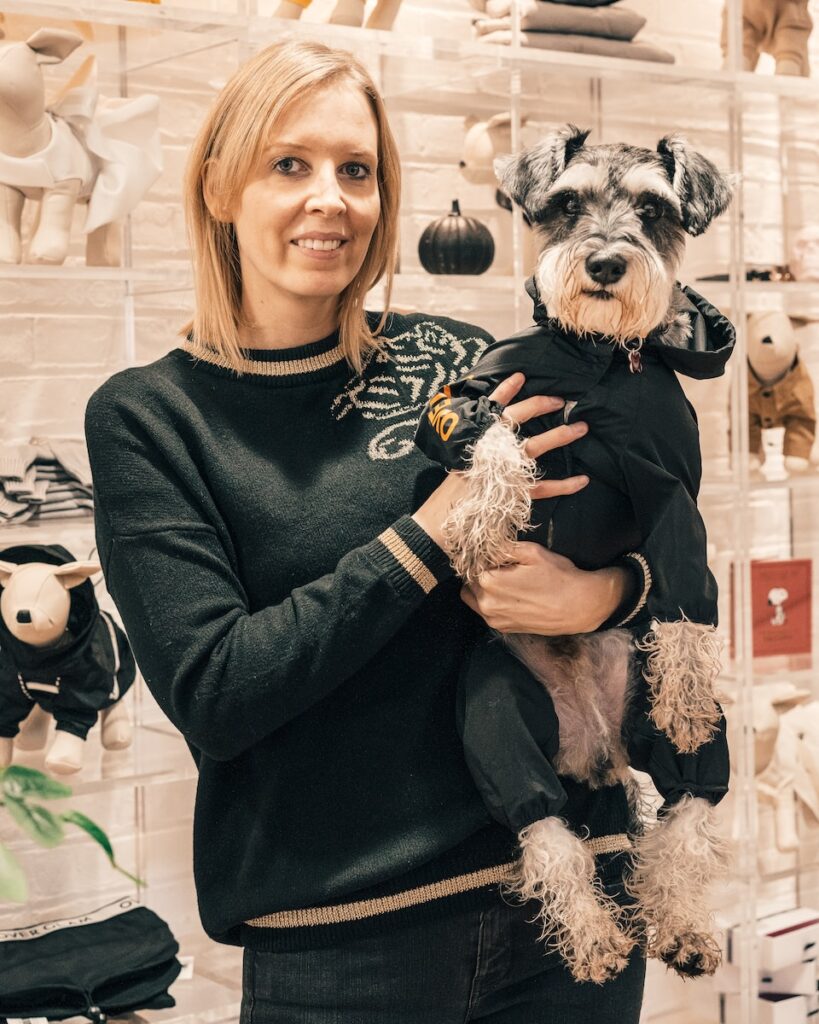
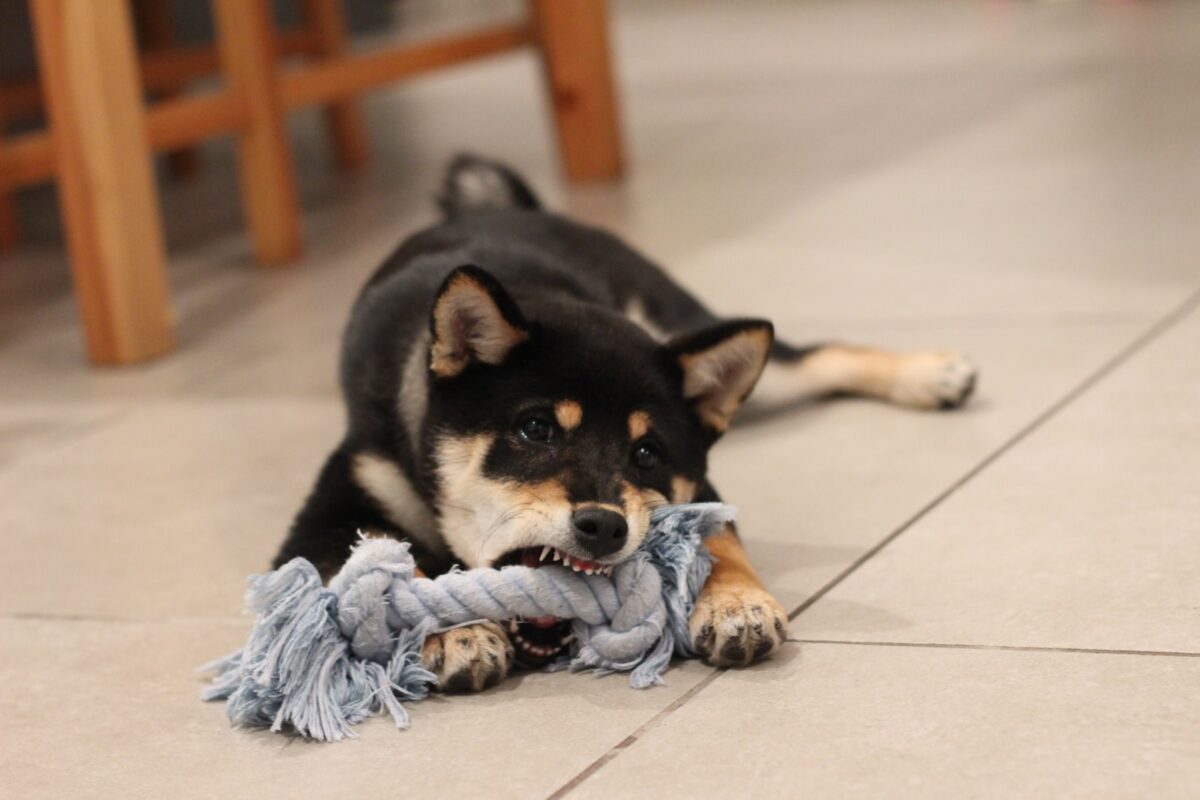

0 replies on “When Do Puppies Stop Biting? A Timeline of What to Expect”
I found this post incredibly useful. The tips and insights you’ve shared are going to be very helpful for my work.
Your comment is awaiting moderation.